Wisdom Tooth Extractions Lakewood
Eliminate the Pain of Intrusive Third Molars
Many people need to have their wisdom teeth removed at some point in their lives. This third set of molars usually emerges in a person’s late teens or early twenties and leaving them in can often lead to problems like chronic pain, alignment issues, TMJ disorders, and even tooth loss. Here’s a brief guide to why we have wisdom teeth, why they often need to be removed, and how wisdom tooth extractions in Lakewood are carried out. If you have any questions, the staff at our office will be more than happy to answer them.
Why Choose Lakewood Complete Dentistry for Wisdom Tooth Extractions?
- Skilled and Compassionate Dentists
- Eliminate Dental Problems at Their Source
- Dental Financing Plans Available
What Are Wisdom Teeth?
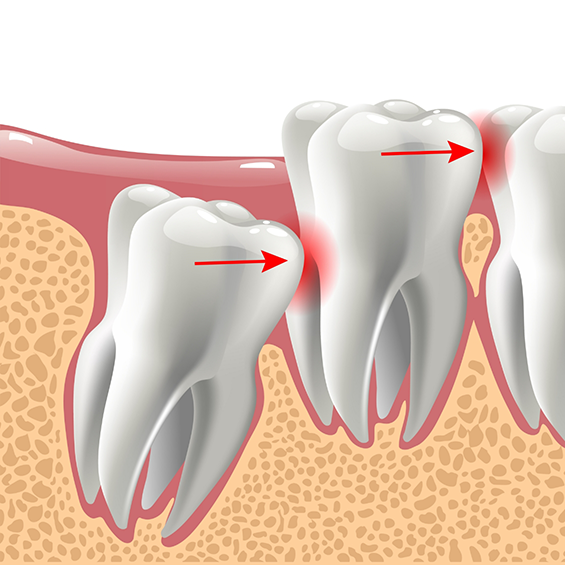
While wisdom teeth were necessary before people figured out how to cook food, modern human jawbones are often too small to accommodate them. These molars typically begin erupting in a patient’s late teens or early twenties, and many people may not be born with all four of them. In some cases, the wisdom teeth do not need to be removed at all.
Why Do Wisdom Teeth Need to Be Removed?
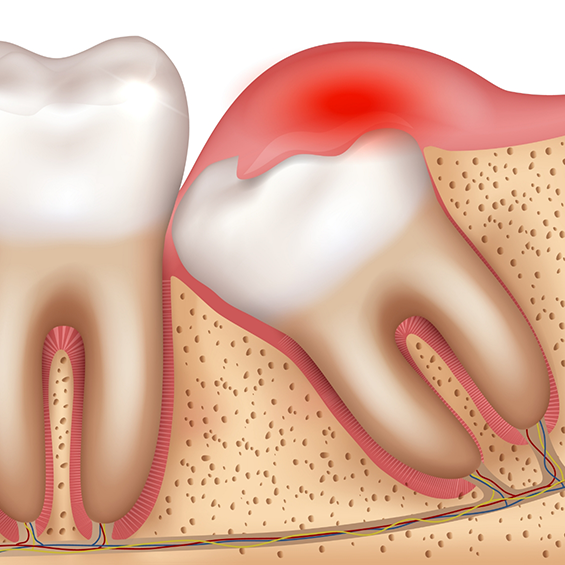
The emergence of wisdom teeth poses a serious threat to the long-term oral health of many people. If the mouth does not have enough room for the third molars, they can push the other teeth out of alignment as they emerge, leading to issues like chronic pain, crowding, misalignments, infections, and damage to the jawbone. If you notice symptoms like pain while chewing, stiffness in the jaw, facial swelling, bad breath, or difficulty opening your mouth, it could be because you need to have your wisdom teeth removed.
What to Expect from the Wisdom Teeth Extraction Procedure
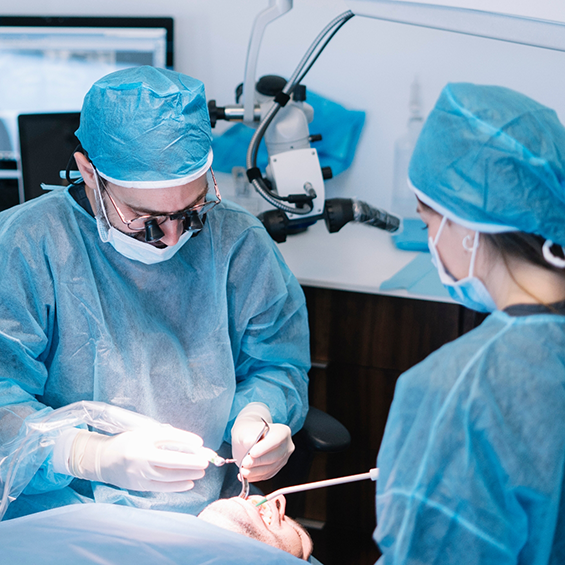
When removing a wisdom tooth that has already erupted, we will use a tool called an elevator to lift it out of its socket before using dental forceps to gently rock it back and forth until it is worked free of the connective tissue. However, if the wisdom teeth do not emerge completely from the gum tissue, they become impacted and require surgical extractions.
Recovering from Wisdom Teeth Extraction

After your wisdom teeth are removed, you can expect to experience some temporary discomfort, facial swelling, and bleeding. It’s still important to maintain a proper oral hygiene routine but remember to brush and rinse gently while avoiding the extraction site. The shifting pressures of spitting or drinking through a straw can dislodge the blood clot, leading to a painful condition called dry socket, so it’s important to avoid doing these things and refrain from carbonated beverages while you are healing. It’s best to stick to a soft diet until you can chew tougher foods comfortably, and it’s crucial that you take any prescribed medications as instructed. If you have any concerns while recovering, please contact our office.
Understanding the Cost of Wisdom Tooth Extractions
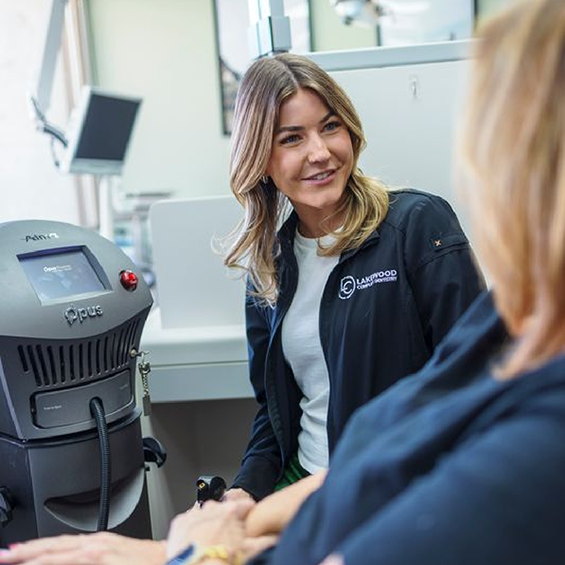
The cost of wisdom tooth extractions in Lakewood can differ between patients depending on several factors, like how many wisdom teeth need to be removed. Our team will outline these cost-associated details with you during your initial consultation, complete a dental insurance benefits check, if needed, and answer any questions you may have. To learn more about our financing options, give our team a call today.
Factors That Impact Wisdom Tooth Extraction Cost
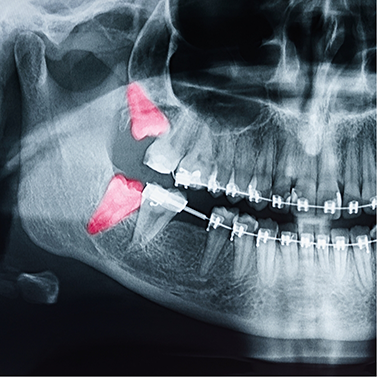
Multiple factors will determine the cost of your procedure, including:
- How many wisdom teeth you have. Some patients only need one wisdom tooth removed, which would cost much less than having all four of them extracted.
- The type of sedation necessary. If your wisdom teeth aren’t impacted, a less extensive form of dental sedation can be used, like nitrous oxide or just local anesthesia. However, for more extensive surgeries, oral conscious or IV sedation may be required.
- The location of your wisdom teeth. If your wisdom teeth haven’t erupted above the gumline, a more invasive surgical procedure will be necessary to remove them. If they are visible above the gumline, the procedure will be much simpler.
- Who performs the surgery. Typically, specialists like oral surgeons have a higher fee than general dentists. Our team has extensive experience in tooth extractions and oral surgery and has special training in a variety of procedures.
Does Dental Insurance Cover Wisdom Tooth Extractions?
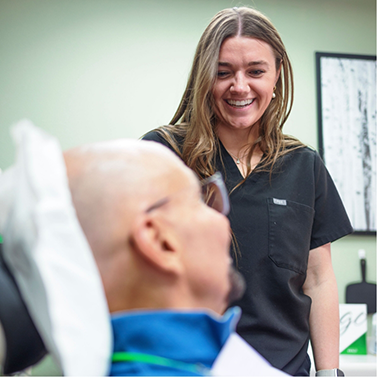
Dental insurance typically covers a portion of the cost of wisdom tooth extraction but not the entire procedure. Our team can help you determine what your out-of-pocket cost will be by conducting a complimentary benefits check for you at your consultation. We’re also in-network with Delta Premier and an umbrella plan, allowing you to maximize your coverage. Even if you aren’t in-network with our office, our team will file claims on your behalf to ensure you’re saving as much as possible.
Ways to Make Wisdom Tooth Extraction More Affordable
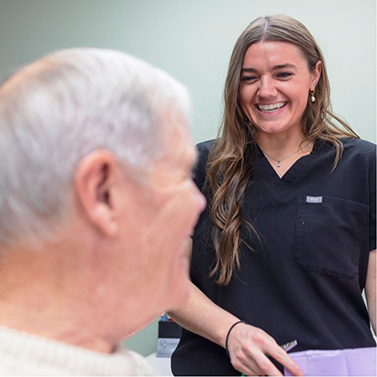
In addition to accepting dental insurance, our office also works with CareCredit to offer low-to-no-interest financing for patients. Upon approval, you’ll be able to choose between a 12 and 24-month payment plan to split the overall cost of your treatment up into smaller, more manageable amounts. We also offer discounts on services through our In-House Savings Plan.
Wisdom Tooth Extractions FAQs
Is Wisdom Tooth Removal Painful?
Whether we’re removing your wisdom teeth with a simple or surgical extraction, the first step is always the same: numbing your mouth thoroughly. This is crucial because we don’t want you to feel any discomfort in the treatment chair. In fact, we provide you with aftercare instructions as well because we don’t want you to experience any pain or soreness during the recovery period either.
Should Wisdom Teeth Be Removed If They Don’t Hurt?
Pain is very common with problematic wisdom teeth. That said, it’s not the only reason we recommend having them removed. If there isn’t enough room in your mouth for them or their presence would negatively impact your oral health by increasing your risk of cysts and infections, then we will recommend moving forward with extraction. Ultimately, the decision of whether or not to have your third set of molars removed is something that you and our team of dentists will need to decide together based on your case.
How Should I Prepare for My Wisdom Tooth Extraction?
There are a few things we recommend doing before your wisdom tooth extraction. The first is arranging for someone you trust to drive you home from your appointment and, if possible, stay with you the first night. The second is buying everything you need for the recovery period (i.e., soft foods, over-the-counter pain medication, gauze pads). It’s also a good idea to touch base with us before your appointment to see if we have any other recommendations, like avoiding tobacco products if you smoke or fasting the morning of your procedure if you plan to be sedated.
Does Everyone Have Wisdom Teeth?
Surprisingly, no. In fact, it’s believed that upwards of 37% of people are missing at least one wisdom tooth. Since genetics seem to play a large role, there’s a good chance that you won’t have a third set of molars if your parents or grandparents didn’t!
How Soon Can I Eat After Wisdom Teeth Removal?
We recommend waiting at least an hour to eat. That way, the numbing agent has a chance to wear off and the gauze is in place for enough time to slow down the bleeding. When it does come time to eat, make sure that you stick to foods that don’t require chewing, like applesauce. As you heal, you’ll be able to eat softer foods, like oatmeal, before eventually resuming your usual diet.
How Do You Sleep After Wisdom Teeth Removal?
You might find that sleeping during the recovery period is a bit challenging, especially the first night. That’s why we recommend having someone stay with you (if possible). The best thing to do is follow all of the guidelines we give you – from taking over-the-counter pain medication and using cold compresses as directed to keeping your head elevated throughout the night.
Why Are Wisdom Teeth Called That?
The third set of molars earned the nickname “wisdom teeth” because they usually emerge in early adulthood (between the ages of 16 and 25).

